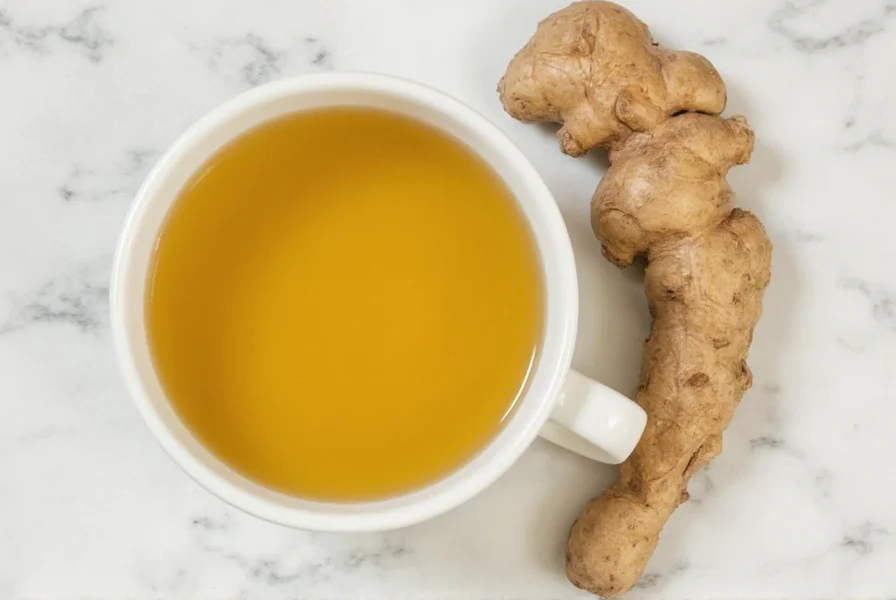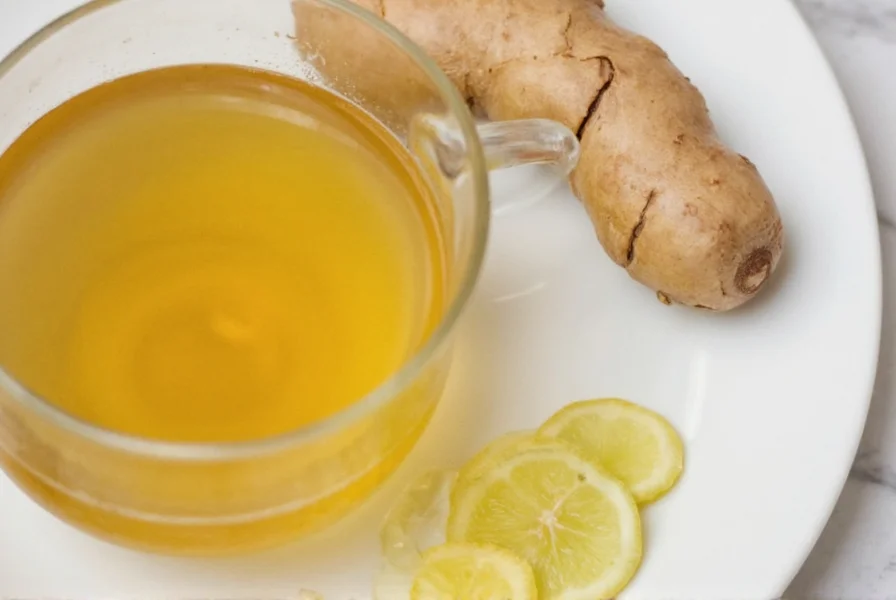Making authentic ginger tea at home is simpler than most people realize. This traditional beverage has been enjoyed for centuries across various cultures for both its distinctive flavor and potential wellness properties. The key to exceptional ginger tea lies in using fresh ingredients and proper preparation techniques that extract the maximum flavor and beneficial compounds from the ginger root.
Essential Ingredients for Perfect Ginger Tea
The beauty of ginger tea is its simplicity. You only need a few basic ingredients to create a delicious, aromatic beverage:
| Ingredient | Quantity | Preparation Notes |
|---|---|---|
| Fresh ginger root | 1-2 inches | Peel and slice thinly or grate for stronger flavor |
| Water | 2 cups | Fresh, filtered water yields best results |
| Lemon | 1/2, sliced | Add after steeping for bright flavor |
| Honey or maple syrup | To taste | Add after cooling slightly to preserve benefits |
Step-by-Step Ginger Tea Preparation
Follow these straightforward steps to make the perfect cup of ginger tea every time:
- Prepare the ginger: Peel 1-2 inches of fresh ginger root using a spoon (easier than a peeler) and slice it thinly or grate it. Thinner slices or grated ginger will produce a stronger tea.
- Boil the water: Add 2 cups of fresh, filtered water to a small saucepan and bring to a rolling boil.
- Add ginger: Once boiling, add your prepared ginger to the water.
- Simmer: Reduce heat and let the mixture simmer uncovered for 10-15 minutes. Longer simmering creates a stronger, more robust flavor.
- Strain: Pour the tea through a fine mesh strainer into your cup or teapot.
- Enhance: Add lemon slices and sweetener to taste. Stir well before serving.

Expert Tips for Superior Ginger Tea
While the basic preparation is straightforward, these professional tips will elevate your ginger tea experience:
- Timing matters: For a milder tea, simmer for 10 minutes. For a stronger, spicier tea with more potential health benefits, extend to 15-20 minutes.
- Freshness is key: Always use fresh ginger root rather than powdered ginger for authentic flavor and maximum benefits.
- Cutting technique: Slicing ginger thinly creates a different flavor profile than grating. Grated ginger releases more oils and creates a stronger, spicier tea.
- Additives timing: Add lemon after steeping to preserve its vitamin C content, which can degrade in high heat.
- Sweetener selection: Raw honey added when the tea has cooled slightly (below 140°F/60°C) preserves its beneficial enzymes.
Popular Ginger Tea Variations
Once you've mastered the basic preparation, try these delicious variations to suit different preferences and needs:
- Ginger lemon tea for immunity: Add extra lemon juice and a pinch of cayenne pepper for an immune-boosting beverage.
- Ginger turmeric tea: Combine with 1/4 teaspoon of ground turmeric and a pinch of black pepper for enhanced anti-inflammatory properties.
- Cold ginger tea: Prepare as usual, then chill and serve over ice with mint leaves for a refreshing summer drink.
- Ginger mint tea: Add fresh mint leaves during the last 5 minutes of simmering for a cooling, digestive-friendly version.
Common Mistakes to Avoid
Even simple recipes can go wrong. Steer clear of these common ginger tea preparation errors:
- Using old ginger: Stale or dried-out ginger produces weak flavor. Look for firm, smooth roots with tight skin.
- Boiling too vigorously: A gentle simmer extracts flavors better than a rolling boil, which can make the tea bitter.
- Adding honey to boiling water: High heat destroys honey's beneficial enzymes and alters its flavor profile.
- Over-steeping with lemon: Leaving lemon in while boiling creates bitterness from the pith.
- Using insufficient ginger: Too little ginger results in a weak, watery tea. Adjust to your taste preference but start with the recommended amount.
Storing and Reheating Ginger Tea
Prepare a larger batch and enjoy ginger tea throughout the week with these storage tips:
- Cool completely before transferring to an airtight container
- Store in the refrigerator for up to 5 days
- Freeze in ice cube trays for longer storage (up to 3 months)
- Reheat gently on the stove rather than in a microwave for best flavor retention
- Add fresh lemon and sweetener after reheating for optimal taste
Why Fresh Ginger Tea Beats Store-Bought Versions
While convenient, commercial ginger teas often fall short compared to homemade versions. Freshly prepared ginger tea delivers:
- Stronger, more complex flavor profile
- Higher concentration of active compounds like gingerol
- Complete control over ingredients and sweetness level
- No preservatives or artificial additives
- Greater potential health benefits from properly extracted compounds
The simple ginger tea recipe requires minimal time and effort but yields superior results to most store-bought alternatives. By controlling the preparation process, you ensure maximum flavor and potential wellness properties in every cup.
Frequently Asked Questions
How long should I boil ginger for tea?
For optimal flavor extraction, simmer sliced ginger in water for 10-15 minutes. If you prefer a milder tea, 10 minutes is sufficient. For a stronger, more robust flavor with potentially greater health benefits, extend to 15-20 minutes. Avoid boiling for longer than 20 minutes as it can make the tea bitter.
Can I make ginger tea with dried ginger powder?
Yes, you can use dried ginger powder as an alternative to fresh ginger. Use 1/4 to 1/2 teaspoon of ginger powder per cup of water. However, fresh ginger root produces a more complex flavor profile and contains higher levels of active compounds like gingerol. Powdered ginger may have reduced potency depending on how long it's been stored.
When is the best time to drink ginger tea?
Ginger tea can be enjoyed at any time of day. Many people prefer it in the morning to stimulate digestion, before meals to enhance appetite, or in the evening to promote relaxation. Avoid drinking large quantities right before bed as ginger can be stimulating for some individuals. For digestive benefits, consume 20-30 minutes before meals.
How much ginger tea is safe to drink daily?
Most health organizations suggest limiting ginger consumption to 3-4 grams per day for adults, which translates to approximately 2-3 cups of standard-strength ginger tea. If you're pregnant, consult your healthcare provider as recommendations may differ. Listen to your body - if you experience heartburn or digestive discomfort, reduce your intake.
Does ginger tea help with nausea?
Numerous studies suggest ginger can help alleviate nausea and motion sickness. The active compounds in ginger, particularly gingerol, appear to have antiemetic properties. For best results when experiencing nausea, drink freshly prepared ginger tea that has been simmered for at least 10 minutes to ensure proper extraction of these compounds. Sip slowly rather than drinking a large amount at once.











 浙公网安备
33010002000092号
浙公网安备
33010002000092号 浙B2-20120091-4
浙B2-20120091-4